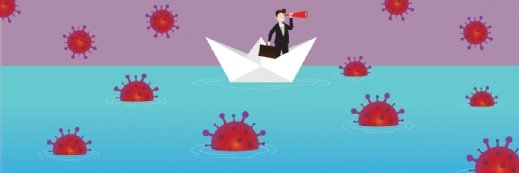
NIH launches long COVID trials studying sleep, exercise, malaise
The clinical trials, part of the NIH RECOVER initiative, will explore sleep disturbances, exercise intolerance, and post-exertional malaise, testing four treatments.
On Wednesday, May 8, 2024, the NIH announced plans to launch additional clinical trials as part of its Researching COVID to Enhance Recovery (RECOVER) Initiative to understand and address sleep disturbances, exercise intolerance, and post-exertional malaise in long COVID patients. The trials join six existing clinical trials in the RECOVER initiative focusing on viral persistence and neurological symptoms.
According to the press release, the NIH plans to enroll approximately 1,660 participants across 50 clinical trial sites.
“The group of symptoms these trials will try to alleviate are truly disruptive and devastating for so many people struggling with long COVID,” said Walter J. Koroshetz, MD, director of NIH’s National Institute of Neurological Disorders and Stroke, and co-lead of the RECOVER Initiative, in the NIH press release. “When people can’t get reliable sleep, can’t exert themselves, and feel sick following tasks that used to be simple, the physical and mental anguish can lead to feelings of utter helplessness. We urgently need to come up with answers to help those struggling with long COVID feel whole again.”
Two studies will be RECOVER–SLEEP clinical trials focused on addressing long-term COVID sleep issues. The first of these trials will test modafinil and solriamfetol, which are FDA-approved for treating hypersomnia. It will assess the efficacy of these drugs in treating daytime sleepiness in patients with long COVID through a placebo-controlled 8–10 week study.
The other RECOVER–SLEEP trial addresses complex sleep disturbances in long COVID patients. The randomized study will assign participants to receive melatonin or a placebo control alongside high-intensity or low-intensity light therapy over eight weeks.
The RECOVER–ENERGIZE clinical trials focus more on exercise intolerance and post-exertional malaise. The first clinical trial uses personalized cardiopulmonary rehabilitation, a combination of exercise training, strength and flexibility training, education, and social support. This trial will focus on patients with exercise intolerance but exclude those with post-exertional malaise. Patients will be randomized to personalized cardiopulmonary rehabilitation or basic exercise education over three months for comparison.
The final study announced by the NIH is for long COVID patients with post-exertional malaise to identify, control, and minimize symptoms. Participants will be enrolled in a structured pacing program, the only intervention to treat this condition.
“Structured pacing is currently the only intervention used to prevent post-exertional malaise, so we hope to test its effectiveness and determine how to best guide patients regarding activity management,” said Lucinda Bateman, MD, an expert in PEM and founder of the Bateman Horne Center, Salt Lake City, a facility specializing in treating people with ME/CFS, long COVID, and fibromyalgia.
Patients will not be asked to incorporate exercise but will be assigned to structured pacing with a trained coach or basic post-exertional malaise for three months.





